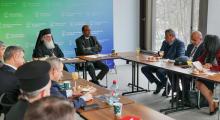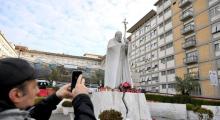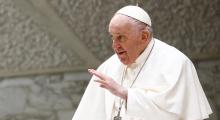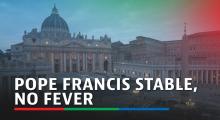Issued by the Catholic Center for Studies and Media - Jordan. Editor-in-chief Fr. Rif'at Bader - موقع أبونا abouna.org
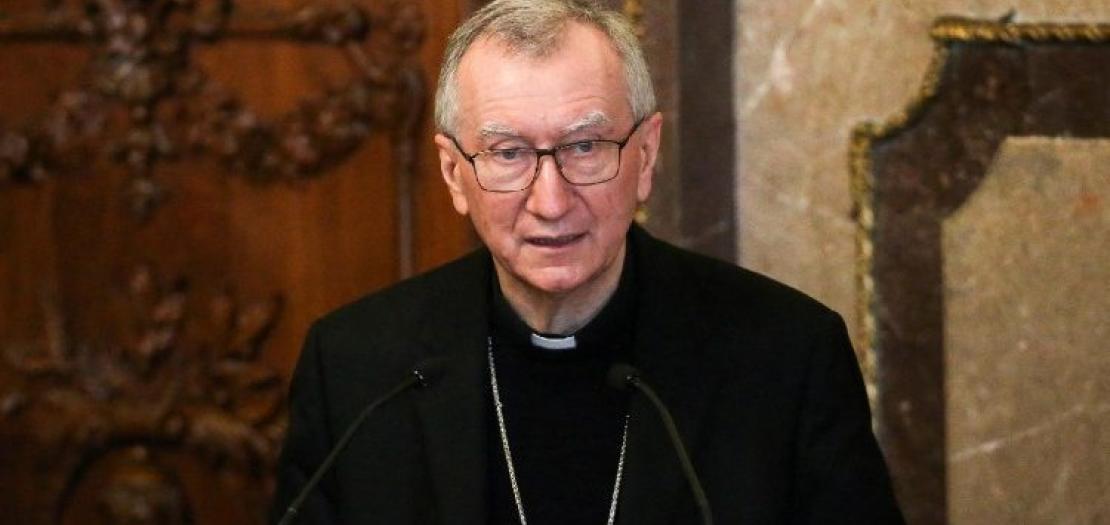
At a time in which international diplomacy seems to have lost its appeal and effectiveness everywhere, Cardinal Pietro Parolin has reiterated the Holy See’s firm support for multilateralism, stressing the importance of inclusive approaches to peace.
Solutions to conflicts should never be imposed unilaterally
“Everyone can contribute to peace, but solutions must never be pursued through unilateral impositions that risk trampling on the rights of entire peoples,” he said, “otherwise, there will never be a just and lasting peace.”
The Vatican Secretary of State shared this view with Alberto Ceresoli, editor of the Italian local newspaper L’Eco di Bergamo. In the wide-ranging interview Cardinal Parolin addressed several pressing geopolitical issues, including the wars in Gaza and Ukraine, the changing situation in the Middle East and the role of Europe in the geopolitical challenges of our time.
Central to his reflection was that solutions to conflicts should never be imposed unilaterally, as such approaches prevent the establishment of just and lasting peace.
A glimmer of hope for the Holy Land
Regarding the Israeli-Palestinian conflict, he expressed cautious optimism about the temporary and precarious truce in place: “It is certainly good news both because its fruits are beginning to be seen—such as the release of Israeli hostages and the increased entry of humanitarian aid into the Gaza Strip—and because there is hope that it could be the beginning of a permanent ceasefire, which would put an end to the suffering of the Palestinian people in Gaza and the rest of Palestine.”
Need for international support to help Syria
Regarding the recent change of regime Syria, Cardinal Parolin expressed concern for its stability and insisted on the need for international support to help the country maintain its territorial integrity and foster harmonious coexistence among its diverse population.
Mutual distrust and fear hinder dialogue
Asked about the inherent difficulties that international diplomacy faces in addressing complex situations such as the wars in Gaza and Ukraine, Cardinal Parolin noted that primary obstacle is the widespread mutual distrust and fear that fuel polarization and hinder constructive dialogue. He reaffirmed that an increasingly prevalent ‘club mentality’ in global politics—where actors engage only with like-minded counterparts while shunning opposing perspectives—further exacerbates diplomatic inefficacy. This self-imposed exclusion from diverse discussions restricts opportunities for meaningful mediation and resolution, he said.
Need for multilateralism and a new ‘diplomacy of hope’
To overcome these challenges, Parolin suggested a different diplomatic approach rooted in what Pope Francis calls a ‘diplomacy of hope’ focused on dialogue, patience, and trust-building. Such an approach, he said would be an alternative to the prevailing dynamics of confrontation and exclusion, proposing instead a framework that prioritizes understanding and long-term reconciliation and could be, therefore, more effective in promoting peace This is why, Cardinal Parolin added, “it is essential to believe in ‘multilateralism’ and strengthen the role of international institutions, such as the United Nations, ensuring that they can operate more effectively and representatively."
Echoing Pope Francis’ and Pope St. John Paul II words Cardinal Parolin also emphasized that peace requires courage, justice, and forgiveness, three values that seem increasingly absent in modern society. “Today the courage to negotiate is often mistaken for weakness, while military power and demonstrations of force continue to be privileged as conflict resolution tools,” On the other hand he added peace must be built on justice on forgiveness, as “authentic peace cannot exist without a just order”
Europe needs a vision
Turning to Europe’s role in global affairs, Parolin traced the continent’s current challenges back to its failure to acknowledge its Christian heritage in the European Constitution. The lack of this recognition has, according to Cardinal Parolin, contributed to a weakening of European identity and unity. For Europe to continue to have a voice and role in the current world context it must therefore return to the historical and cultural roots that once gave it its strength and vision, as called for by Pope St John Paul II and Pope Francis.


